Quit Like a Millionaire
Interview with Kristy Shen
„Spending your money on your own freedom is the best money you will ever spend. Whether you love your job or hate it, there is no better use of your time than learning how to invest and earning the freedom to do whatever you want with your time.“ – Kristy Shen, Privatière and author of „Quit Like a Millionaire“
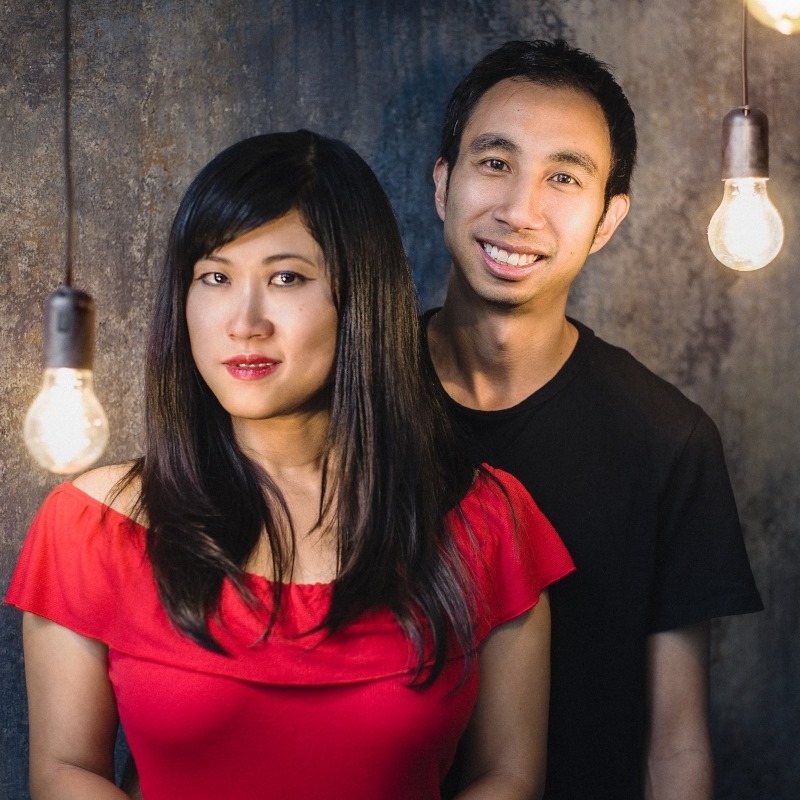
Kristy Shen & Bryce Leung (c) Kristy Shen
Kristy Shen and her husband Bryce Leung wrote a book called Quit Like a Millionaire* (find the German book review here!). It describes their path into financial independence. Kristy and Bryce are well-known within the FIRE-Community (Financial Independence Retire Early). Since the success of their book and their blog Millennial Revolution, they attracted worldwide attention, because their story is very unique.
Grown up in bitter poverty in rural China, Kristy made her way retiring early at the age of 31 together with her husband Bryce. Since then, the couple spend their time traveling the world and doing whatever they want to do. Find out in this interview with Kristy Shen how they were able to do it, what she thinks about the 4-percent-rule, if you need a high income to reach financial independence and retire early, what their investment strategy looks like, how COVID changed the FIRE-community and what else we talked about.
Table of Contents
- What’s your story?
- How did you come up with the idea of retiring early?
- What does Money mean to you? Did you change your view on money over time?
- How did you manage to retire when you were only 31 at age?
- Is a high income important to achieve financial independence and early retirement?
- How reliable and valid is the 4-percent-rule in your opinion from today’s perspective?
- How would you describe your investment strategy?
- You developed your own withdrawal strategy to protect yourself from bear markets and stock market crashes. The Cash Cushion and the Yield Shield are the two main pillars of this strategy. Did you adjust your investment strategy or your withdrawal strategy since the publication of your book?
- How did your portfolio develop since your book came out?
- You also talk about the advantages of geographical arbitrage. One of my favorite quotes from the book is: “If shit hits the fan, we’re going to Thailand!” So, when things get uncomfortable at the stock markets, there is a way to withdraw less money from your portfolio by travelling to less expensive countries. That seems like reaching two goals at once – to travel AND to save money. What is your favorite travel destination?
- How did you get through the pandemic so far? Did all the travel restrictions during the pandemic have a great impact on you?
- Do you feel that the pandemic has changed the FIRE movement?
- What is the best advice you can give to people that are interested in FIRE? What is the most important aspect to achieve that goal?
- Do you have any special tips for families with children?
- Can you recommend any books, blogs, podcasts or channels on the topic of FIRE? Do you have any special recommendations for German-speaking countrie?
- What’s next for Kristy and Bryce? What are your plans for the future?
- Will there be a new edition of your book? Any other book projects?
- How can people follow you?
- Do you have a final message for my readers?
Hello Kristy! Thank you very much for taking your time to do this interview for FINANZBIBER.COM. First of all, I want to congratulate you on your book Quit Like a Millionaire*. I read it twice and I think it’s very inspiring and I also noticed that your story is well-received in German speaking countries as well at the moment. For all the readers that don’t know about your story, please tell them – what’s your story?
I was taught at a young age to work hard, buy a house, be loyal to your company, and I’d be taken care of. Then I learned out that was a lie. Jobs are unstable (and getting even worse), real estate requires getting into massive amounts of debt for decades, and companies treat their workers like garbage. We were getting squeezed from all directions.
This all came to a head when one of my co-workers collapsed and nearly died at his desk. They had to take him to the hospital for emergency surgery. And the scariest part is that just one week later, he was back at his job as if nothing had happened because he couldn’t afford to stop working. That’s when I went looking for a new way to live. We needed a new rule book, and that’s when we discovered the Financial Independence Retire Early (FIRE) movement.
How did you come up with the idea of retiring early?
Retirement wasn’t on my radar for the longest time. I was just trying to figure out how to afford a house! But around 2012 my husband Bryce started to really understand how investing your money in index funds rather than a house can create a passive income that lets you retire. And when he ran the math, we realized that at our current savings rate, we could have either signed up for a mortgage for the next 25 years, or retired in 3. It was an easy decision.
What does Money mean to you? Did you change your view on money over time?
Money means freedom. Freedom from your job, freedom from your boss, freedom to do whatever you want with your time and not have to answer to anyone. I didn’t always think like this, I thought money was something you used to buy things, like cars or houses, but now that I realized money could buy freedom, using it to retire at 31 was the best decision I ever made.
How did you manage to retire when you were only 31 at age?
Because we lived in a high-cost city (Toronto), we spend the first part of our careers power-saving our way to being able to afford a house. But we found that the more our down payment fund grew, housing just kept getting more and more expensive. It felt like the game was rigged.
Around 2012, our down payment fund had grown to about $500,000. That’s a significant amount of money, so we started to look for what else we could do besides blow it on a house. That’s when we discovered that if we were to invest it and grow it in the stock market, we could potentially hit $1,000,000 in just 3 years, so we decided to do that. We ended up hitting that magic number in 2014 when I was 31, and we retired the year afterwards in 2015.
Is a high income important to achieve financial independence and early retirement?
It definitely helps, but the biggest factor that affects your path to financial independence is your savings rate, not your income. If you make lots of money but your spend it all, you’re worse off than someone who makes less money but saves half of it.
How reliable and valid is the 4-percent-rule in your opinion from today’s perspective?
It’s worked out brilliantly for us so far. The 4% rule, which states that you can retire if your living expenses if equal to 4% of your investment portfolio, was based on a study that looked at stock market performance over its entire history, and is a conservative number that works over 95% of the time. Since we retired, we’ve gone through 2 stock market crashes (the 2015 oil crash and today’s pandemic) and not only have our investments remained intact, they’ve grown since the day we quit. So, if anything, the 4% rule seems overly conservative.
How would you describe your investment strategy?
Don’t pick individual stocks, and don’t try to time the stock market. Use index funds, which track the performance of the entire stock market. For a step-by-step guide, check out our Investment Workshop (https://www.millennial-revolution.com/investworkshop/) which is a free course we created to help beginner investors build a portfolio just like ours.
You developed your own withdrawal strategy to protect yourself from bear markets and stock market crashes. The Cash Cushion and the Yield Shield are the two main pillars of this strategy. Did you adjust your investment strategy or your withdrawal strategy since the publication of your book?
Both have worked out incredibly well, even in the most recent pandemic. While stock market values can swing wildly based on what you read in the news, dividends and interest have been remarkably stable, even when the economy got shut off. In 2020, we still managed to earn $38,000 in yield from our Yield Shield strategy, and because we only ended up spending $34,000 that year, we still managed to make money despite not working and despite their being a global pandemic.
How did your portfolio develop since your book came out?
When we first left, our portfolio was allocated 60% equities and 40% fixed income (bonds). We also had a some higher-yielding assets like Preferred Shares, Real Estate Investment Trusts (REITs), and high-dividend stocks as part of our Yield Shield strategy. Over time, as our portfolio has grown in size, we have gradually become more aggressive in our equity allocation, as well as simplifying our portfolio by eliminating some of our Yield Shield assets since we no longer need as much yield. As of now, we are allocated 75% equities and 25% fixed income, and high-dividend stocks is the only “high-yield” asset class we own.
You also talk about the advantages of geographical arbitrage. One of my favorite quotes from the book is: “If shit hits the fan, we’re going to Thailand!” So, when things get uncomfortable at the stock markets, there is a way to withdraw less money from your portfolio by travelling to less expensive countries. That seems like reaching two goals at once – to travel AND to retire early. What is your favorite travel destination?
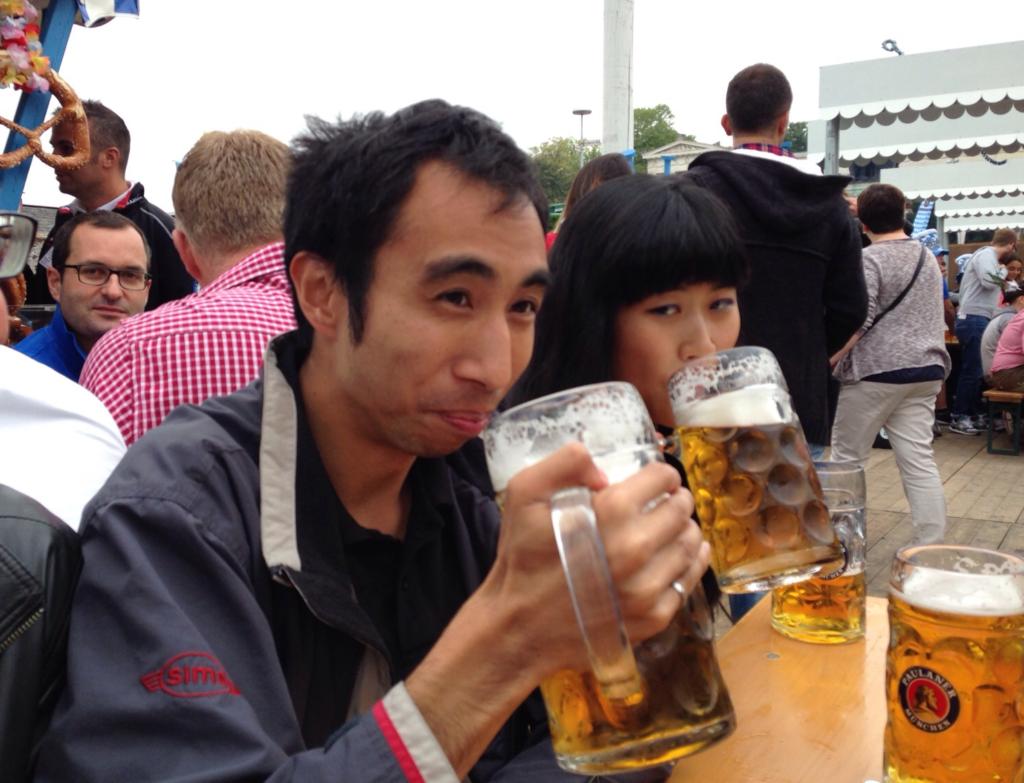
Kristy Shen & Bryce Leung at Oktoberfest (c) Kristy Shen
How did you get through the pandemic so far? Did all the travel restrictions during the pandemic have a great impact on you?
When the pandemic first hit at the beginning of 2020, we were in Thailand at the time, which was the second country to be affected by COVID after China. Borders started closing down and flights started to become scarce, so it was a bit of a mad scramble to get back into Canada before everything shut down, but thankfully we managed to make it back on the 2nd to last flight out of Taiwan.
Since then, we’ve been stuck in Canada for a year and a half. We thought at first this would blow our budget, but surprisingly it didn’t. Due to the pandemic lockdowns, our spending went down. We also decided to do more “local” travel and explore more of our own country during this time, spending a couple months in British Columbia to escape the winter, and we’re currently planning on exploring the Atlantic provinces this summer. Turns out, Canada’s a really big country! Who knew?
Do you feel that the pandemic has changed the FIRE movement?
At first a lot of reporters thought that the pandemic would be the end of the FIRE movement, but if anything I think we’ve grown even stronger. The central reasons that the FIRE movement exists (expensive real estate, unstable jobs) have become even more true since the pandemic hit, and the media is noticing now that while the pandemic has affected everybody, the people in the FIRE movement seems to have emerged largely unscathed.
FIRE doesn’t necessarily mean that you literally quit your job and retire, it means that you arrange your finances so that you no longer need your job in order to live. That message has grown even more appealing, and will continue to do so as time goes on.
What is the best advice you can give to people that are interested in FIRE? What is the most important aspect to achieve that goal?
If you’re interested in FIRE, start working towards it now. You don’t have to understand everything about it before you begin, but the earlier you start saving the faster it will happen. You don’t want to wake up one day when it’s too late, with your best earning years behind you, wondering where all your money went.
Do you have any special tips for families with children?
We don’t have kids, so we’re obviously not experts at this, but some of the FIRE bloggers did it with kids. GoCurryCracker.com has 2 kids, RootOfGood.com has 3, and even MrMoneyMustache.com has 1.
So don’t think that if you have kids, FIRE is out of reach. It can still be done, you just need to find the right role models to learn from.
Can you recommend any books, blogs, podcasts or channels on the topic of FIRE? Do you have any special recommendations for German-speaking countries?
Obviously our book Quit Like a Millionaire* and blog millennial-revolution.com are great starting points. There are the blogs I mentioned above the people with kids. There aren’t any German-language resources out there right now that I’m aware of, but hopefully we’ll have a German translation of our book out soon 😊
Quit Like a Millionaire is the story of Kristy Shen, who grew up in bitter poverty in rural China and received financial indepence and retired at the age of 31 together with her husband Bryce Leung.
They developed a million dollar portfolio by living a frugal life, saving and investing to retire early using the 4-percent-rule that is well-known in the FIRE-community (Financial Independence, Retire Early).
What’s next for Kristy and Bryce? What are your plans for the future?
Getting back to our nomadic life, as soon as possible. We’ve learned that we really can’t be in one place for more than a few months without going a little crazy, and we’re really looking forward to border restrictions easing soon as the world gets vaccinated. My passport has been very bored lately…
Will there be a new edition of your book? Any other book projects?
We’re always working on something, but nothing to announce just yet. Stay tuned to our blog www.millennial-revolution.com for the latest updates!
How can people follow you?
Our blog is the best way to hear from us.
Do you have a final message to my readers?
Spending your money on your own freedom is the best money you will ever spend. Whether you love your job or hate it, there is no better use of your time than learning how to invest and earning the freedom to do whatever you want with your time.
Thank you very much for the interview, Kristy!
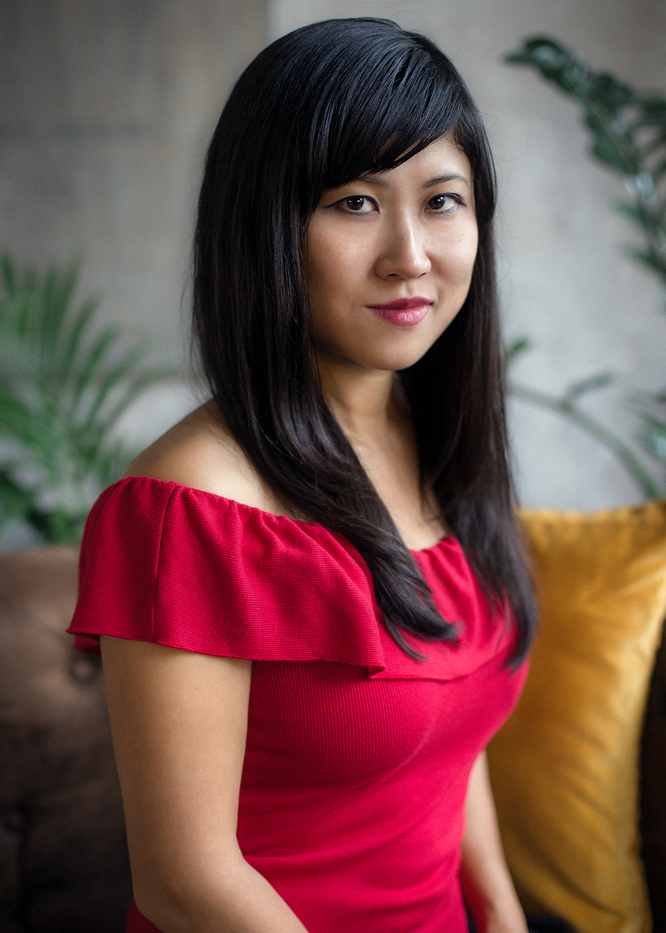
(c) Kristy Shen
Do you want to read the interview in German? Find the german interview with Kristy Shen here!
Did you like the article Quit Like a Millionaire: Interview with Kristy Shen? Leave a comment and follow me on Instagram, Facebook or Pinterest and sign up for my Newsletter for my latest updates. If you think the article is worth sharing it, just feel free to do it! :-)
More interesting books
Your Money or Your Life* by Vicki Robin & Joe Dominguez
Your Complete Guide to a Successful and Secure Retirement* by Larry Swedroe & Kevin Grogan
Financial Freedom: A Proven Path to All the Money You Will Ever Need* by Grant Sabatier
Disclaimer: The information on this page has been researched to the best of my knowledge and belief, but only reflects my personal opinion. It is not to be understood as investment advice or recommendations, nor can I that they are correct, complete or up to date. Please note that investing can lead to high losses. Find out more in the Disclaimer.
Transparency: This article contains my personal recommendations as affiliate links. These are marked with a (*). If you order something through these links, I will receive a small commission. This does not change the price for you. These commissions help me cover the costs of running this website. Thank you very much for that.
Weitere Buchbesprechungen
Mehr Geld für mehr Leben
Dem Konsumterror entfliehen und mit 30 oder 40 frühzeitig in den Ruhestand gehen? Frugalismus ist in aller Munde. Wer sich...
Über die Psychologie des Geldes
★★★★★ - Bei manchen Büchern weiß man bereits während man sie liest, dass man sie noch ein zweites Mal lesen wird. "Über...
Amerika in Flammen
★★★★☆ - Amerika gilt als das Land der unbegrenzten Möglichkeiten. Leben, Freiheit und das Streben nach Glück sind die Gründungsprinzipien, auf deren...
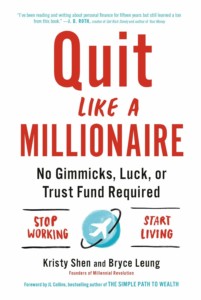
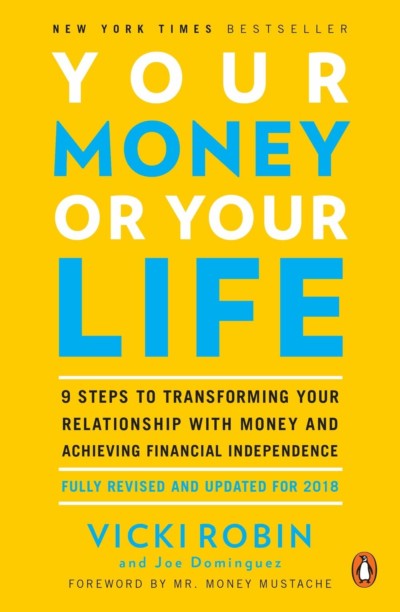
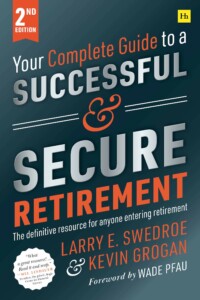
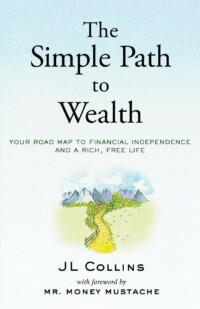
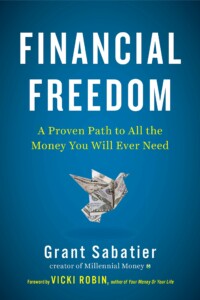
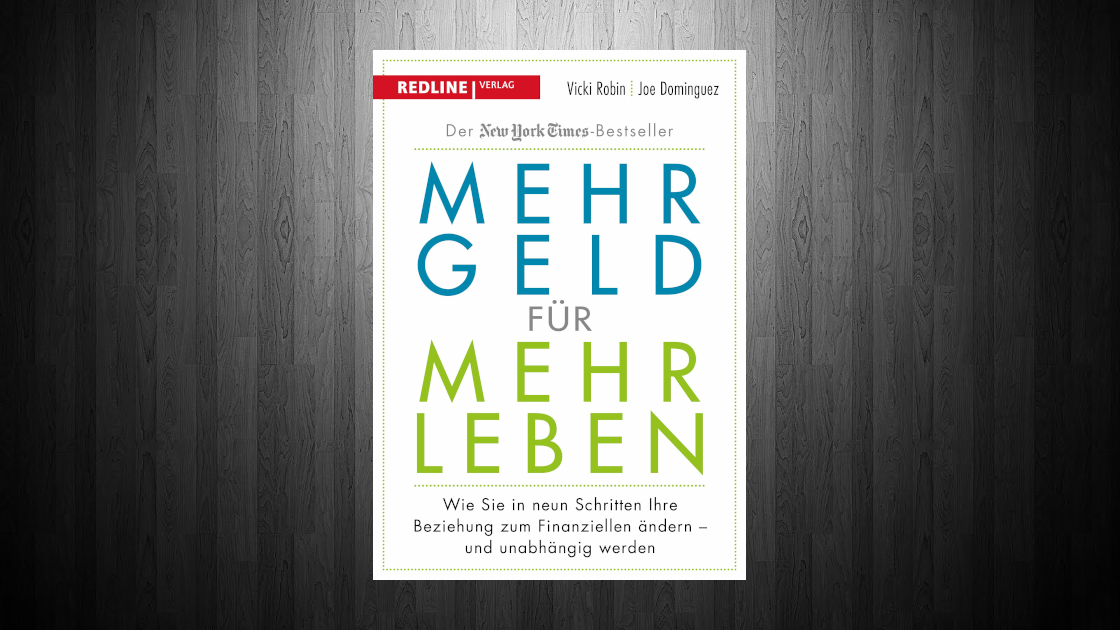
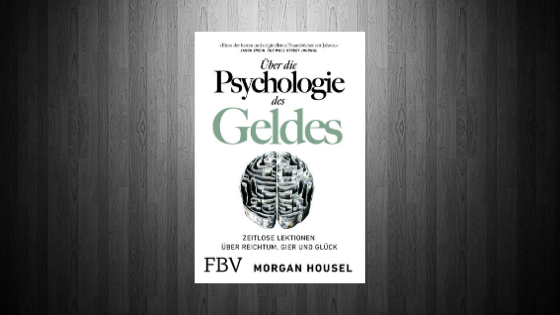
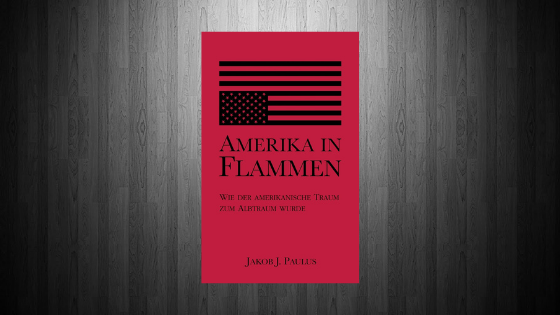
Hinterlasse einen Kommentar